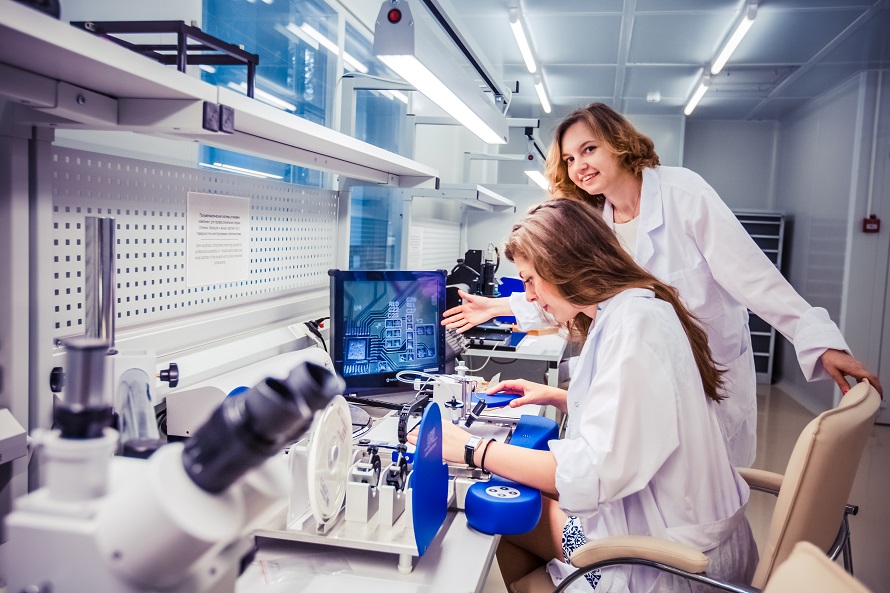Students in Russian universities not only study theories, but are active in serious scientific research.
Many universities have their own labs and research centers equipped with cutting-edge technology. Most research is more practical than theoretical; for example, students in Samara University have built a hi-tech satellite which was recently launched into space.
Alexander Teslin from the Robotics and Cybernetics Department of Polytechnic Institute of SFU has improved the software of an industrial robotic manipulator. This will help to simplify the production process and almost entirely exclude human labor.
Dmitry Tabakaev – a Master’s student from the Department of Radio Physics at TSU – has developed a model of an organic impulse laser which is designed to replace several more cumbersome devices currently in use.
Andrei Kosinets from the Medical Institute of the RUDN University has modernized an amplifier (a device designed to analyze DNA). As a result, the diagnostics process will become simpler.
A student from the School of Biomedicine at FEFU Ekaterina Gorobets has suggested an innovative approach to synthesizing tetrodoxin – an effective pain killer. Her colleague, Vladislav Kuznetsov, is developing implantable bio structures for the regenerative therapy of brain injuries.
Olesia Shirokova – a neurobiologist from the Institute of Biology and Biomedicine at Lobachevski University – is also conducting important research into the anatomy of the human brain. At the present time, she is studying spiny neurons – one of the smallest and least understood structures of the brain. Her research can become key to understanding how human memory works.
Students conduct research not only within the walls of their own alma maters, they also do “field” work. For example, a research expedition to study the coastal waters in Kaliningrad Region was organized recently for students and researchers from three universities: MSU (Department of Geography and Marine Sciences), IKBFU (Department of Marine Geography) and MIPT (Department of Thermohydromechanics of the Ocean).
Students from the School of Cultural Studies from HSE are now on a road trip that is taking them to such disparate destinations as Georgia, Armenia and Iran. For two weeks the students will be studying the modern cultures of these countries and collecting material for their research.
As you can see, the study-life of students in Russia is not only very interesting, but also potentially productive on a grand scale. Come to study in our country and join the excitement of such dynamic (even world-changing) research!



























































